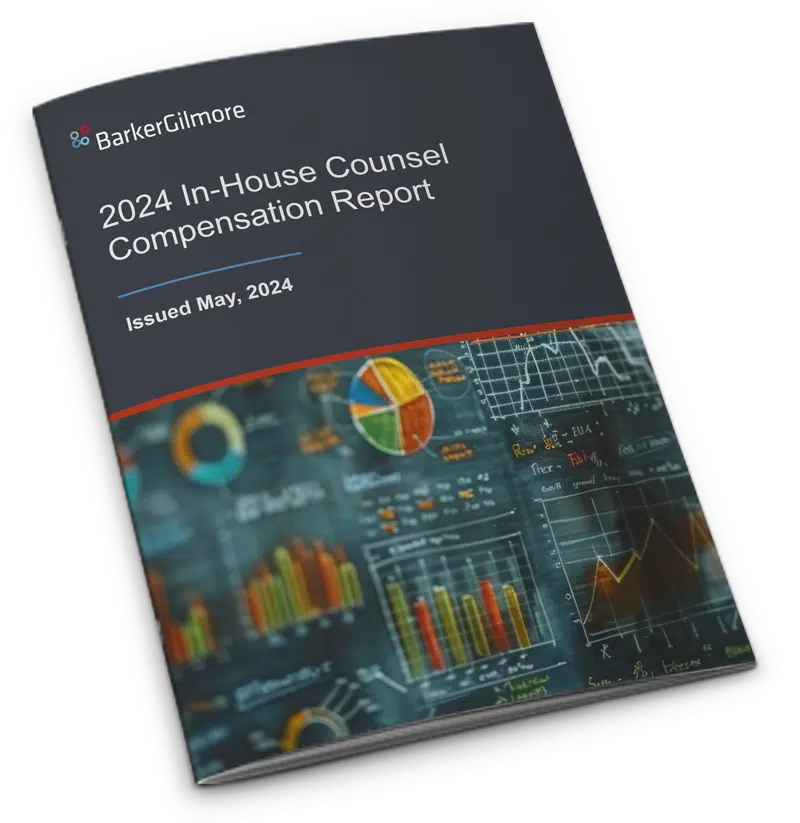As a seasoned legal recruiter with over 20 years of experience, I’ve learned that a lot of very smart attorneys make the same not-so-smart mistake: They fail to understand the attributes expected of a strong general counsel.
That’s because the skills that make for a crackerjack law firm lawyer and a high-performing in-house attorney — obsessive attention to detail, tactical execution, focus on risk — are not the same traits required of a successful General Counsel. As chief counsel, you’re expected to serve as a trusted business partner and advisor to the C-suite, influencing, and executing upon, the company’s long-term growth plans.
This requires a demonstrated knack for understanding what others feel and why they behave in certain ways. It demands a reputation for being easy to work with and hard to provoke. It means appearing calm in the face of stress and pressure. And it necessitates enthusiasm and optimism for the business, which is not always easy for someone who’s been trained to identify the worst case scenario.
As it turns out, all of these factors align with a high emotional quotient (EQ), which is why we, at BarkerGilmore, search for candidates with high EQs when we’re filling a GC position.
The good news is that all of these traits can be developed with sufficient time and attention.
Perception is all
Over the course of my career, I’ve spoken with countless CEOs about why a particular candidate, who appears perfect on paper, is not an ideal fit for GC.
And it always comes down to perception. While an internal candidate may rightly believe she has the skills, attributes and experience to assume the role, she hasn’t developed a reputation to match. In short, she doesn’t project the kind of poise, composure and confidence that a CEO looks for in a GC.
And nobody is more surprised to receive this feedback than the candidate, who has undoubtedly received stellar annual reviews and cannot understand why she is being passed over for the GC role in favor of an outside candidate (more on this later).
In order to demonstrate your readiness for a GC role, here are the 10 top qualities you should project:
- Sound judgment
- Integrity
- Legal expertise
- Strategic perspective
- Creative problem solving
- Risk management
- Forward thinking
- Powerful communicator
- Leadership
- Global perspective
Preparing for GC success
Once you’ve established a solid reputation across the above 10 criteria, you have the foundation to become a successful General Counsel.
You should always come prepared to answer the following interview questions (regardless of how they’re phrased):
- Why do you want to be a GC? Remember, this has to be about more than money and prestige. This should be driven by a passion to help shape the strategic vision and drive business success.
- How do your colleagues perceive you? To understand your brand perception, you should take advantage of all available resources, asking your colleagues, mentors and coaches to provide their frank opinions. You may also want to employ personality assessment tools, such as the Hogan Personality Inventory, which we use at BarkerGilmore. This will allow you to identify and address key areas of development. Understanding these weaknesses will help you improve your reputation around these key mandates.
- Have you built trusted relationships with your board and executive team? Establishing deep, trusted relationships with your senior leadership team is a vital component of being a successful GC. It’s also a basic building block of a high EQ. As the company’s chief legal advisor, you will need to have difficult conversations around sensitive topics. And you may sometimes find yourself at loggerheads around potential growth opportunities that carry significant risk. The only way to achieve common business goals is to listen, understand and compromise. A lawyer may be lauded for being tough, but a great GC should know how to shift effortlessly from adversary to collaborator. If you haven’t been able to form relationships and gain the respect of the executive team, it will be a barrier from obtaining the position in your current company, and can significantly reduce the chances of landing the GC position elsewhere.
- Do you have a passion for the business? Last, but by no means least, you must be ready to share why you love the company. After all, you are not only going to be a legal advocate. You will also be a brand advocate, committed to helping the business grow. A demonstrated interest in the industry – and, more specifically, in the company’s products and services – will go a long way toward winning over the C-suite, since it suggests that you will be a forward-thinking leader with a thoughtful (rather than stringent) risk appetite.
In sum, when you’re interviewing for a GC role, it’s vital to understand and communicate your personal brand. Much as you would prepare for a trial or a client engagement, you should come armed with evidence (stories and proof points) that highlight key traits, demonstrating that you’ve earned the esteem of your business partners. And you should be ready to share accolades that illustrate your strong reputation in the industry.
As a final note, once you’ve developed the essential experience, skills and traits required of a top-performing GC, you must be prepared to look outside your company. GCs tend to enjoy long tenure, and you don’t want to sit around waiting to make your next career move.
So, even if you’ve been tagged as the successor to the current GC, forward-thinking attorneys should seize opportunities to land their dream roles.
Connect with a legal recruiting advisor
* indicates required fields







